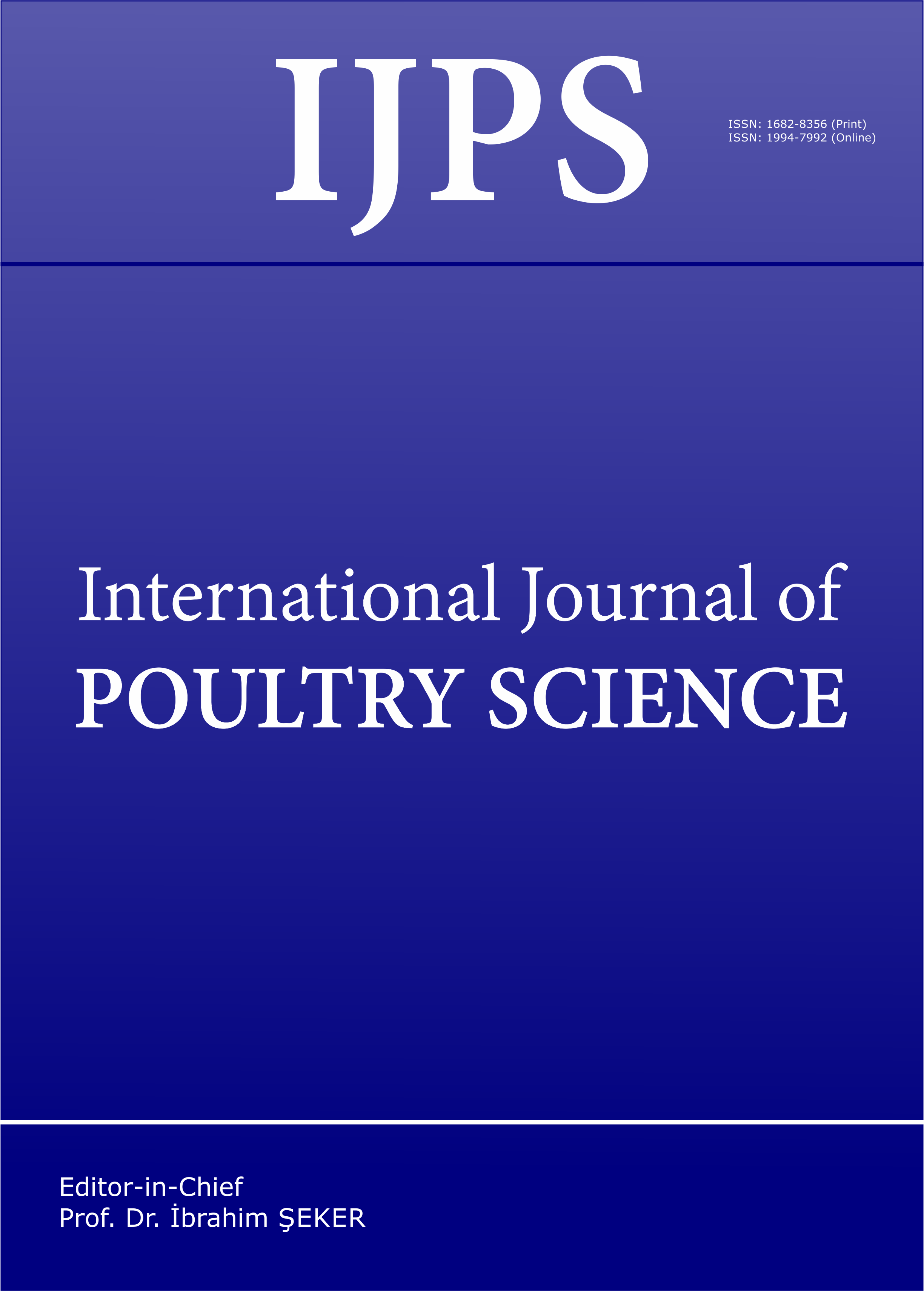Influence of Stocking Density and Feed Pellet Quality on Heat Stressed Broilers from 6 to 8 Weeks of Age
DOI:
https://doi.org/10.3923/ijps.2005.55.59Keywords:
Breast meat, broiler production, heat stress, pellet quality, stocking densityAbstract
Experimentation examined the advantages of decreased pen stocking density of male broilers reared in a summer environment from 6 to 8 weeks of age while receiving either a whole pellet or crumbed feed. Whole pellets led to improved body weight gain as did reduced stocking density; however, mortality due to sudden death syndrome increased when both advantages were combined. Neither treatment significantly affected feed conversion. Males fed pellets had chilled carcasses with increased abdominal fat, whereas amounts of fillets and tenders were similar to those given crumbs. Conversely, expanding the area available for each bird enabled improved recovery of fillets and tenders without altering abdominal fat. Light reflectance of fillets measured 48 h post-mortem revealed a higher L* (lightness) and lower a* (redness) with birds that had received pellets than crumbs, whereas reduced stocking density increased b* (yellowness) values without altering L* and a*. Improving the stability of pelleted feed and reducing pen stocking density enhanced the overall production of heat stressed broilers, but each factor did so in an independent and different manner.
Downloads
Published
Issue
Section
License
Copyright (c) 2005 Asian Network for Scientific Information

This work is licensed under a Creative Commons Attribution 4.0 International License.
This is an open access article distributed under the terms of the Creative Commons Attribution License, which permits unrestricted use, distribution and reproduction in any medium, provided the original author and source are credited.

